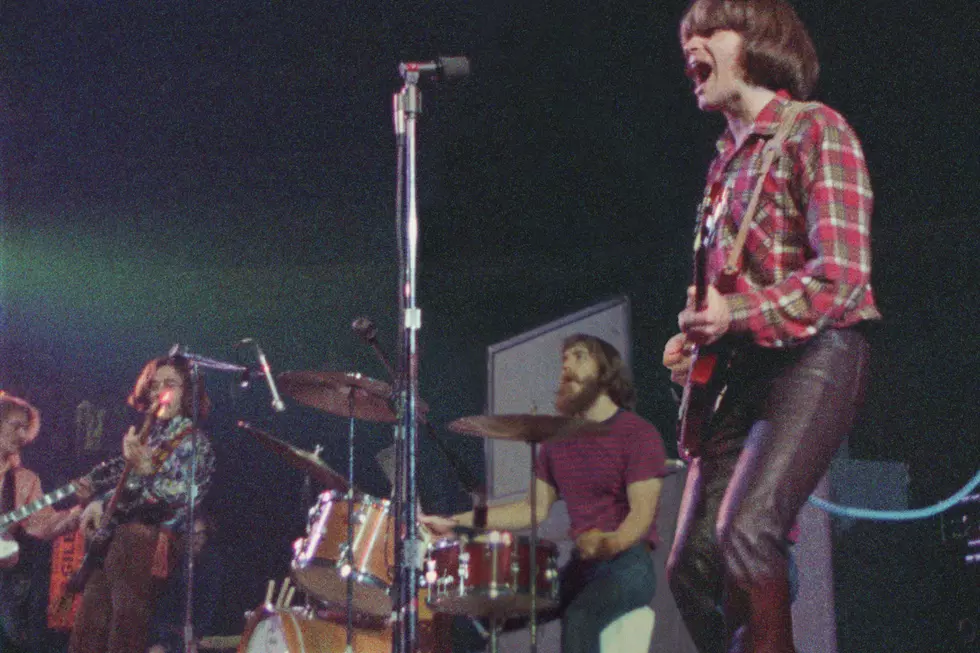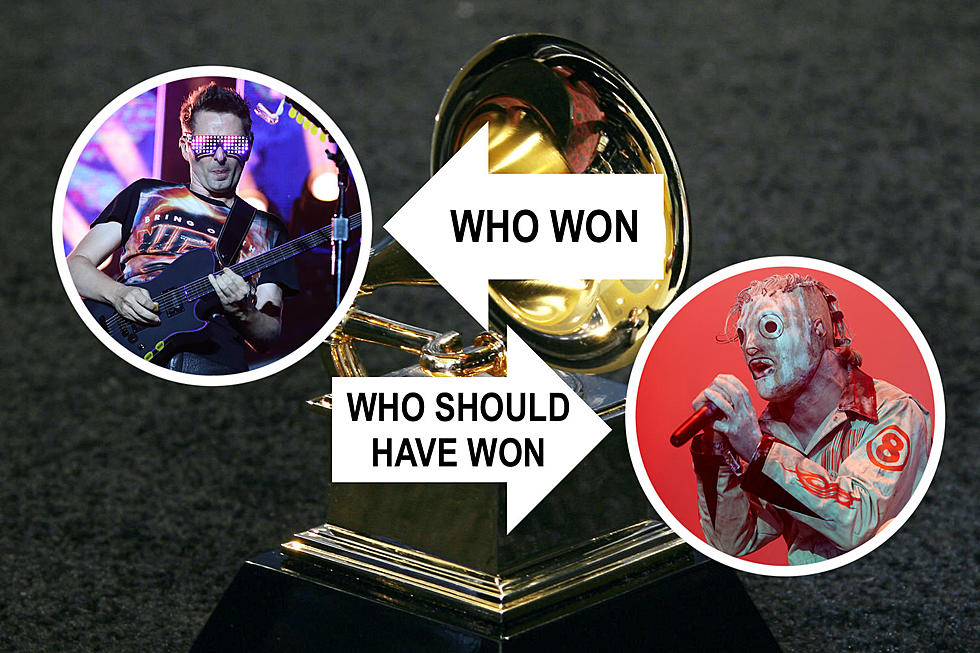
John Fogerty Still Doesn’t Own His Old Creedence Songs: Exclusive
For years, John Fogerty refused to record to new music, even refused to perform his old songs. He blamed a bad deal with Fantasy Records' head Saul Zaentz, and legal action followed.
But all of that seemed to be behind him after the former Creedence Clearwater Revival frontman returned with the blockbuster 1985 solo album Centerfield. It wasn't – not the lawsuits or, it turns out, the issue with his songs.
"I don’t own them, still," Fogerty tells UCR. "But hopefully I'm going to live long enough that they finally revert to me. It's a period of about 56 years, and so far, we've been celebrating the 50th anniversary of 'Proud Mary,' so you do the math. It should be pretty soon."
Zaentz ended up suing over a tune he said defamed him, "Zanz Kant Danz" from Centerfield, and even went so far as to charge Fogerty with plagiarizing Creedence Clearwater Revival's "Run Through the Jungle" on his comeback hit "The Old Man Down the Road." Zaentz lost the suit over copying CCR, and Fogerty ended up changing the other song's title to "Vanz Kant Danz."
He's gone on to release six more solo studio projects, and today Fogerty even performs CCR-themed concerts. But bad feelings remain.
"At some point, I realized I was being treated very poorly and that I wasn’t being paid anywhere near a proper way," Fogerty says. "In the back of my mind, I wanted to own my songs – my children, you might say. I’m talking about owning the songs themselves, the publishing, but I realized that I had been lied to by Saul and I wasn’t going to get to own them. He wasn’t going to allow me to own them."
Things had gone like this ever since Fogerty exited Creedence Clearwater Revival in 1972, with the artist still owing Zaentz's Fantasy Records more songs. But Fogerty refused to do business with someone he said so badly mismanaged his career. Things got nasty, very fast.
"He had let the other members of Creedence out of their contract, but he didn’t let me out of that same contract," Fogerty explains. "So, although I knew that Saul owned my music and by that point had also stolen my life savings in an offshore tax shelter – in another miserable part of the story, he had basically stolen our life savings and gotten away with it. After all that, I found myself in the horrible position of having to give any new music, any new records, to Saul Zaentz. That was why I stopped."
Fogerty suddenly found himself in a classic-rock Catch-22. "I just felt like I was playing into Saul’s hands if I did, as he was going to profit more from me out there performing the songs," Fogerty said. "It was a horrible career conundrum and choice, because it’s suicide to a career. Your fans want to come see you sing those songs; they don’t want to hear you sing other songs. It was just really horrible on my career."
Watch John Fogerty Perform 'Proud Mary'
The late Zaentz eventually sold his interest in Fantasy Records, and Fogerty almost immediately re-signed with the label, releasing 2007's Top 20 hit Revival. He also started playing CCR's music again.
"I remember hearing stories of old-time guys like Irving Berlin, and there were certain parts of their business plan that you learned as a young up-and-comer," Fogerty says. "And I suppose someday I’ll be, 'John Fogerty, that guy that outlived the whatever thing and he finally got his songs back!' I hope that it goes that way."
Still, he never saw Creedence Clearwater Revival's songs as any different from his solo work. In fact, the first project Fogerty oversaw upon his return to Fantasy was 2005's The Long Road Home, a gold-selling compilation that blended tracks from both eras.
"Put it this way: I was alone when I wrote each one of them," Fogerty recalls. "They’re all solo songs, so I don’t differentiate. Obviously, I know that the world knows 'Proud Mary' [as CCR]. As a songwriter and a guy who’s been thinking about it since he was one year old, it’s all part of the evolution or the arc that I’ve had in music."
He composes the exact same way, even now. "When I go to write a new song, it’s my same personality, the same father who’s dying to birth another new wonderful song – or not," Fogerty laughs. "You work at it. The same guy that wrote 'Proud Mary' is hoping to dare the fates and the gods and come up with another one, but he realizes that’s a pretty tough assignment."
Creedence Clearwater Revival took "Proud Mary" to No. 2 in 1969, then saw Ike and Tina Turner put their own spin on the song, which rose to No. 4 in 1972. "I first heard it in the car," Fogerty remembers. "I believe it was in the wintertime and it was probably suppertime, and I just thought it was the coolest thing – and I still do. It was a wonderful divergence from the original."
Decades later, Fogerty finds himself touched by a rootsier reinterpretation of a classic CCR moment. "Those are the wonderful things that happen," he says. "[There was] a Willie Nelson version of 'Have You Ever Seen the Rain' and I hadn’t been aware of it, but my wife had watched the part in the TV show [Little Big Lies], and I thought, 'That really sounds good.' There was a wonderful, different kind of spooky vibe to the song."
Ranking Every CCR Album
More From US 103.1 FM










